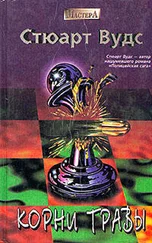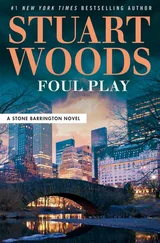She was drugged and raped by the colonel who was her commanding officer. She filed a criminal complaint, along with another young woman, a sergeant, who had suffered the same experience with the man. The colonel was found not guilty by a panel of his fellow officers, and Holly received an unwanted transfer to a transportation company. It was then that she had read, in a law enforcement magazine, an ad for an assistant chief of police in a small Florida town, Orchid Beach. She applied and was hired. She excelled, as she had in everything she had ever done. A year later, her chief died, and she applied for his job. She got the job on a trial basis.
As chief she became aware of possible criminal activity at a real-estate development where all of the homeowners had questionable backgrounds. She contacted the FBI, who took over her investigation. But she had continued to work on it almost to the exclusion of everything else. An agent of the CIA turned up and helped her: first, to break the case without the help of the FBI, and then to join the Agency as a raw recruit sent for training to Fort Peary, known as the Farm.
She progressed through the CIA, becoming an assistant to the then deputy director, Lance Cabot, and later to Katharine Rule, who later had become Katharine Lee and the president of the United States.
Now, after two terms as Kate Lee’s secretary of state, Holly Barker was the president-elect of the United States.
But something small in her record caught Elizabeth’s eye. The colonel who was charged with her rape had retired from the Army and was hired as the chief of police in Orchid Beach, while Holly was still serving in that role on a trial basis. She must have been furious, Elizabeth thought. But then, not long after his arrival in the small town, the colonel committed suicide.
Elizabeth got on her computer and began researching the colonel’s case. All the evidence in the case supported suicide as the cause of death, except the absence of a motive. Holly was soon given the chief’s job. A suspicious person, as Elizabeth was, might think that Holly Barker had a perfectly evident motive for murder, and the skills to leave no evidence at the scene. She did, however, have an alibi; she had been having a drink at a local bar with another police officer. Easily arranged, Elizabeth thought, if the other officer shared her opinion of the dead colonel.
Elizabeth began checking on the history of the officer who had provided the alibi: killed in the line of duty two years later, while investigating a case of domestic violence, well after Holly had left for her CIA training. Dead end.
Elizabeth closed and locked away the file, feeling relieved that she had found nothing to sully the name of a woman she admired. Still, it might stir up Sykes.
Sykes had all four of his men and one woman, Bess Potts, to dinner on a Saturday night. They dined on porterhouse steaks, perfectly grilled and sliced by Elroy Hubbard, who had been cooking for him for the past four months.
“Where did you find Elroy?” Bess asked Sykes.
Sykes poured her more of the grand California cabernet. “He was a ship’s cook in the Navy for more than twenty years. When a lot of the older ships were cut up for scrap, and he found himself ashore, his former CO on a battleship got him transferred to Naval Air Station Pensacola, as chef in the officers club. When he finally retired, a naval acquaintance of mine recommended him.”
“He’s just perfect, isn’t he?” she asked.
“Just about,” Sykes replied.
“But he seems not to have your full confidence,” Bess said. “Last time I was here, you had a tendency to change the subject when he was nearby. Is it a racial thing?”
“I guess I’m as much a racist as the next man,” Sykes said. “He’s always had a bit of an attitude that troubled me.”
“I see,” she said. “After dinner I’d like to talk to you about something I found in the files at Justice.”
“Oh, good.”
When the others returned to their quarters, Bess hung back, then produced a copy of Holly Barker’s file. “I think you’ll find this interesting,” she said.
“Do you mind if I read it now?” Sykes asked.
“Go right ahead.”
Sykes read the file rapidly, then looked up from his brandy. “This thing about her chief’s suicide is interesting, isn’t it?”
“I think so, too. She had the skills and training to shoot him with his own gun, clean up after herself, and leave the body to be found the following morning by his maid.”
“She had an alibi, too,” Sykes said.
“Yes, and it stood up. The man who said he was with her in a bar died in the line of duty at a later time.”
“You think she killed the colonel?”
“She certainly had an excellent motive, didn’t she? Drugged and raped, then he’s found not guilty by a jury that included a buddy of his.”
“Was there a tox screen on the body of her former CO?”
“There was an autopsy, but the local ME didn’t think a tox screen was indicated. And the body was cremated. I tried to search the records of the drugstore where he had his prescriptions filled, but they were dumped a long time ago.”
“So here’s a headline for you: PRESIDENT-ELECT A SUSPECT IN A COP MURDER AND FAKED SUICIDE. COP’S MEDICAL RECORDS VANISHED.”
“Pretty good,” she said, “but not all his medical records, just his prescriptions.”
“Picky, picky, picky,” Sykes said. “I know a fellow with a radio talk show who’s really good at turning a news story into a walking, talking myth, and he has an audience who’ll eat it up.”
“That sounds like Jake Wimmer,” she said.
“You’re absolutely right,” Sykes said.
“It’s a little late, isn’t it? She’s already been elected.”
“It’s not too late to make her life hell for a while,” Sykes said, “and it could come back to bite her in the ass when she’s running for reelection.”
“You don’t want it traced back to you,” Bess said. She hadn’t counted on this.
“Jake knows when to talk and when not to talk,” Sykes said. “And if he should talk, he knows how to blame the right people.”
“You’d better be very, very careful,” Bess said. “You might get more than your fingers burned.” She tossed back her brandy and got up. “Time for me to go,” she said. “I don’t need a hangover tomorrow morning.” She thanked him for dinner, found her coat, and drove away from the house.
All the way home she thought about what she had done, and the possibility of unintended consequences. She was going to have to find a way to turn this back onto Sykes.
At home, she sat down and made a list of people to contact, especially people in the printed press and the television political shows.
Then she sat down at her typewriter and wrote a description of what she had seen in Holly Barker’s file and what Sykes’s reaction was when he read it, then she faxed it to a contact.
That was all she could do for now.
When Elizabeth arrived at her desk on Monday morning, there was an encrypted e-mail waiting for her. She ran the app, then read the message. Alfresco lunch today? 12:30? She responded: OK.
She bought a deli sandwich at noon, then drove to Rock Creek Park and left her car in a legal space. She walked down a trail and found a picnic table; he was already there.
He rose to greet her, a cool handshake. “Have a seat,” he said.
They both opened their bags and began eating their sandwiches.
“Is anything wrong?” she asked.
“I’m concerned by your lack of progress,” he said.
She frowned. “What more do you expect me to do?”
“I want you to tie Sykes and his cohorts to the shootings of the Secret Service agents in Maine.”
Читать дальше












